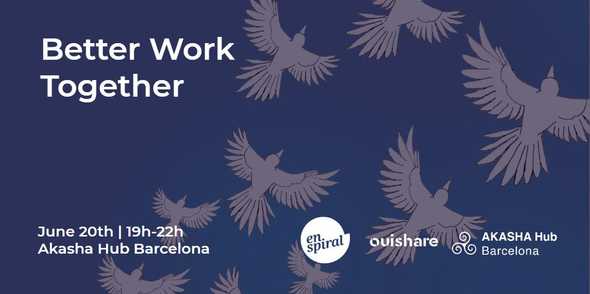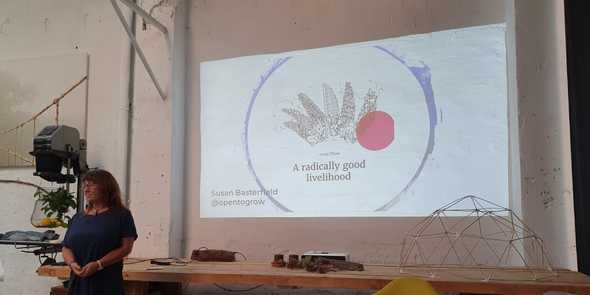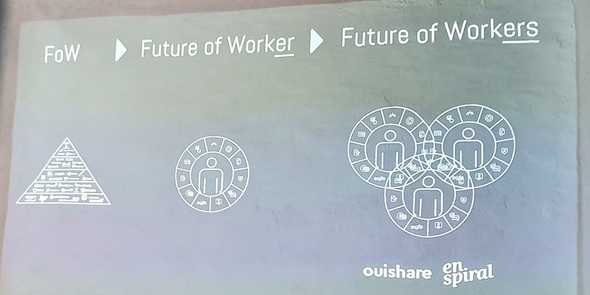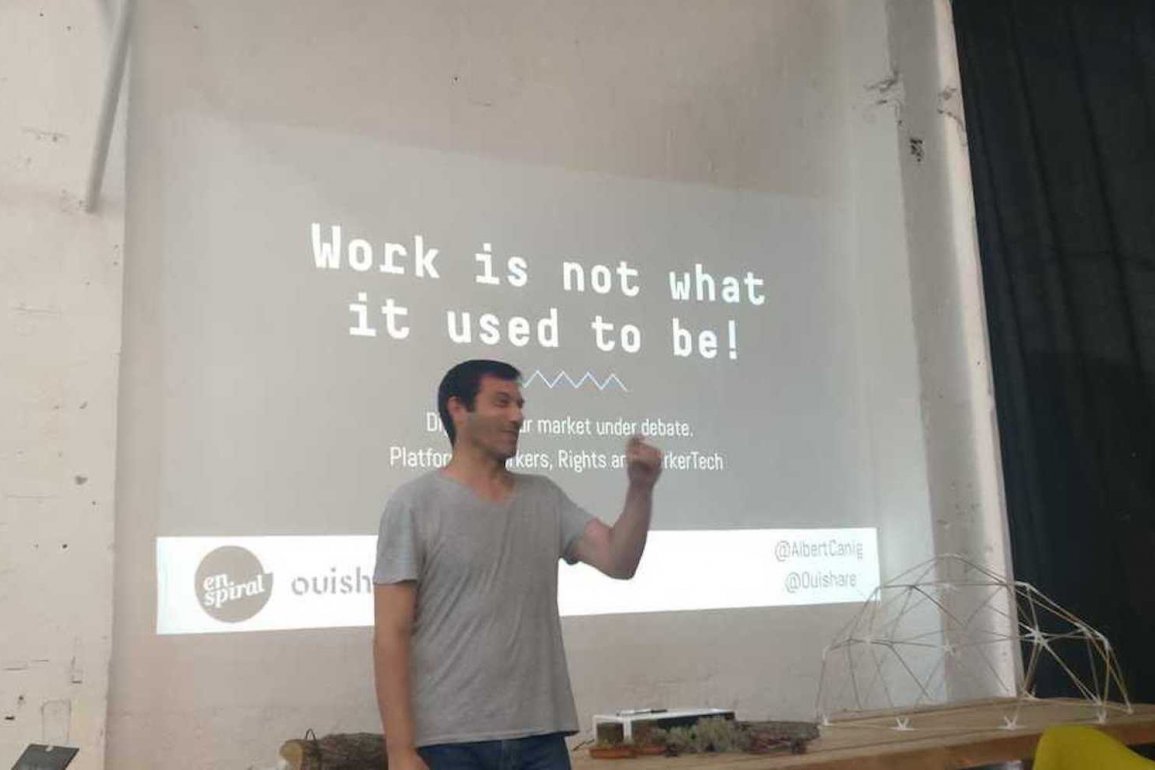By Joshua Long & Lorenzo Patuzzo and originally published at akasha.org
On June 20th, the AKASHA Hub Barcelona hosted Ouishare and Enspiral for an evening book-launch event. Practitioners from both the aforementioned networks, spanning from New Zealand to Europe, came to share their stories and knowledge from the front-lines of working together in their collaborative networks.
Attendees heard about the challenges and potential of building entrepreneurial collectives, as well as the legal and institutional structures needed to support these networked ways of working.

Attendees were treated to three presentations:
Building a radically good livelihood through collective entrepreneurship – Susan Basterfield
Work is not what it used to be! The legal and institutional structures we need to protect and empower the freelance and platform economy – Albert Cañigueral
How to publish a book as a collective: the story behind Better Work Together – Anthony Cabraal
These presentations covered the length and breadth of the future landscape of work; what this means for individuals, collectives, and organizations; as well as posing some interesting questions and insights, such as:
- Communities of independent workers – an oxymoron? – Albert Cañigueral
- The future of work: communities of independent workers… It’s hard to do it alone. Not so different from guilds of the medieval times. – Albert Cañigueral
- The map we’re using for the world of work is out of date – Albert Cañigueral
- Do you believe everyone has the potential to keep developing as a human being until they die? – Susan Basterfield
 Susan Basterfield talking about “A radically good livelihood.”
Susan Basterfield talking about “A radically good livelihood.”
Susan shared a really personal story of how she went from working in the corporate world, where she felt that things were somehow “wrong,” to her new way of working. Albert gave a great industry overview around Workertech and Digital Labour, and a recently-published report which looks at how digital platforms are shaping the labour market and how solutions are emerging to meet the needs of workers in the gig economy.
 A slide from Anthony Cabraal’s presentation.
A slide from Anthony Cabraal’s presentation.
Anthony talked about the challenges of publishing a book as a collective, and questions such as how to write something coherent while enabling everyone to bring their own voice and authenticity.
He also shared an insight into the book’s revenue model, which is a capped-return funding model, which means that if it is successful, the authors and producers will get some pay back up to a certain cap, with Enspiral Foundation, the community that wrote it, ultimately benefitting from the long-term revenue.
At AKASHA, we believe that humans are not problems waiting to be solved, but potential waiting to unfold, and changing the way in which we approach work is a big piece of the puzzle when it comes to amplifying and unleashing the untapped potential of human beings.
We have moved through many different epochs of work as a species: from the ancient Greeks who saw work as a curse; to the Protestant Reformation, which normalized physical labor for all of society; to the proliferation and secularization of the Protestant Ethic; and to the advent of the information age, which fundamentally changed the onus of production, shifting it from physical to knowledge-based tools.
Big changes in working environments, capabilities, and attitudes require similar shifts in how the individual and the organization approaches work itself. Seeing people tackling these big questions head on brings up interesting new questions and answers about the Future of Work.
Interested in coming to some of our future Barcelona Hub events? We post information about upcoming events on our Twitter, @AkashaBarcelona, as well as putting them up on the events part of our AKASHA Hub Barcelona Meetup.com page!
Republished with permission.




